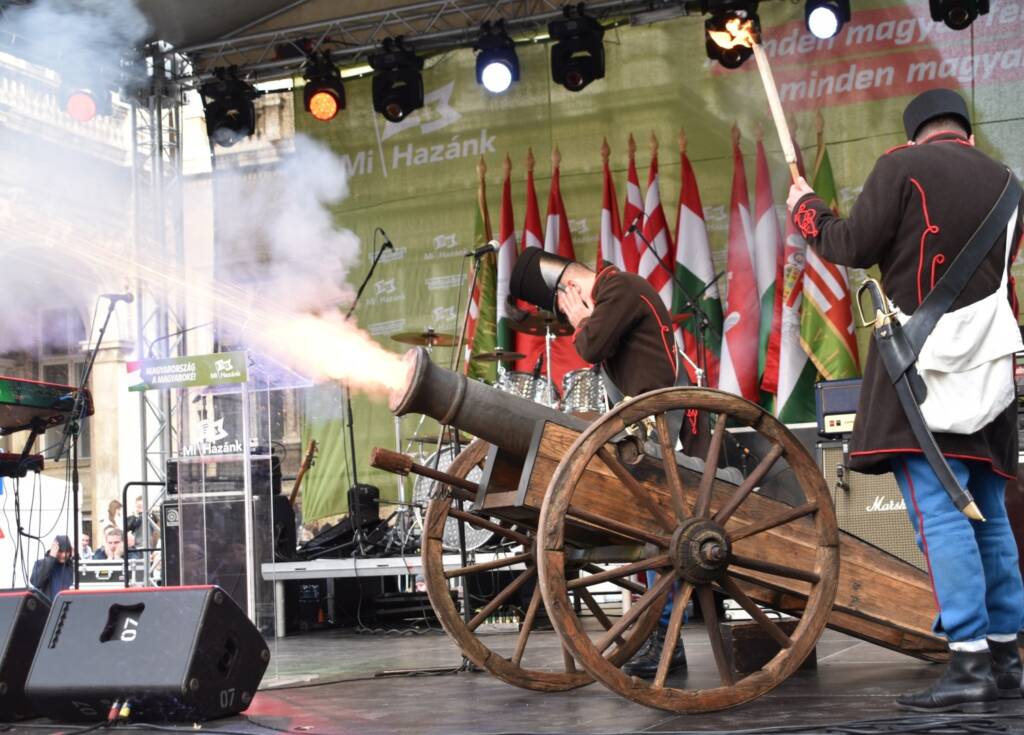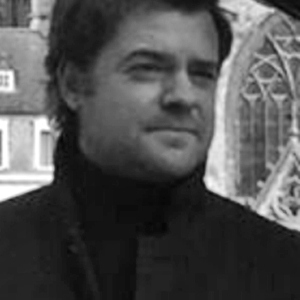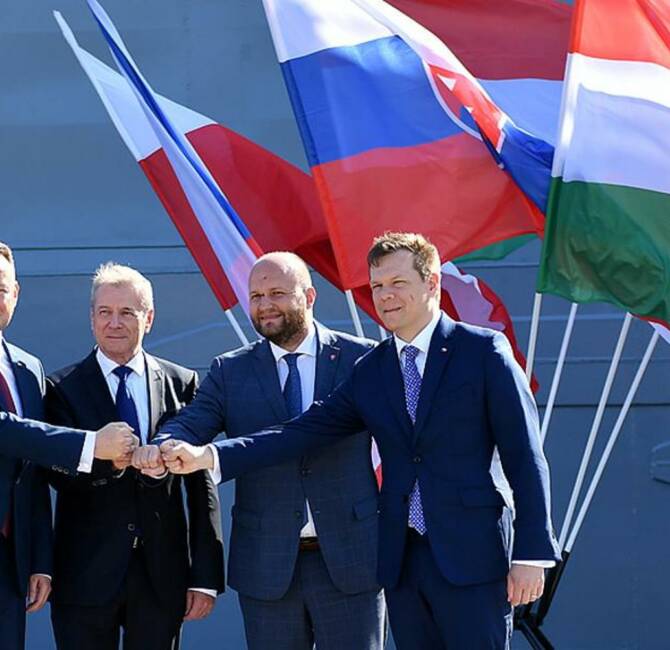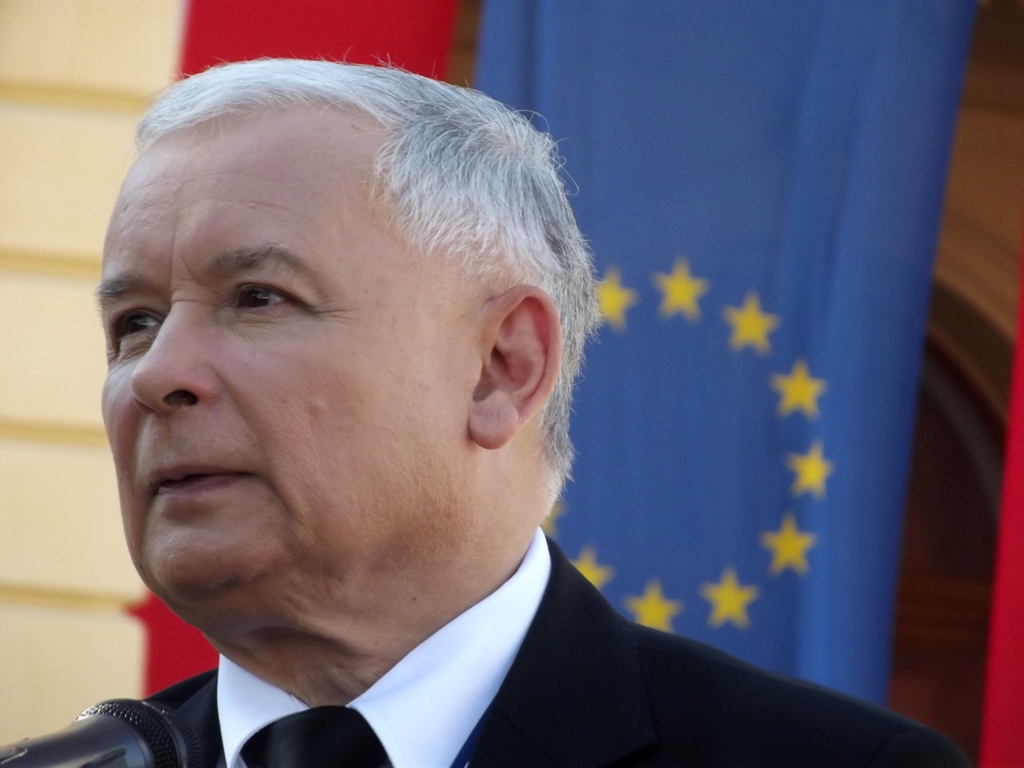Hungary – If 15 March is first and foremost the anniversary date of the Hungarian revolution of 1848, it is also always the occasion for large political rallies. This year, due to the imminent holding of legislative elections, these political rallies took on particular importance. Thus, the pro-government forces organised their traditional “March for Peace” which ended with a speech by Prime Minister Viktor Orbán in Kossuth Square, the united opposition parties gathered their troops in front of the University of Technical and Economic Sciences, and the nationalist party Mi Hazánk invited its supporters to gather in front of the National Museum.
“No war”
Several hundred thousand people responded to the government’s call and participated in the ninth edition of the “March for Peace” to show their support for the Prime Minister and his government in view of the legislative elections to be held on 3 April. Protesters marched behind a banner reading “No war”, the government’s official position being to get as little involved in the Russian-Ukrainian conflict as possible and to ensure that “Hungary does not pay the price of this war”.
In his speech, Viktor Orbán advocated peace and security and explained that Hungary had nothing to gain from this conflict and everything to lose. According to him, Hungary has always been surrounded by great powers and it would be illusory to want to defeat them. According to Viktor Orbán, the only possible course of action in this situation of conflict is affirmation of the strength provided by the economic, social, national and moral recovery initiated in 2010.
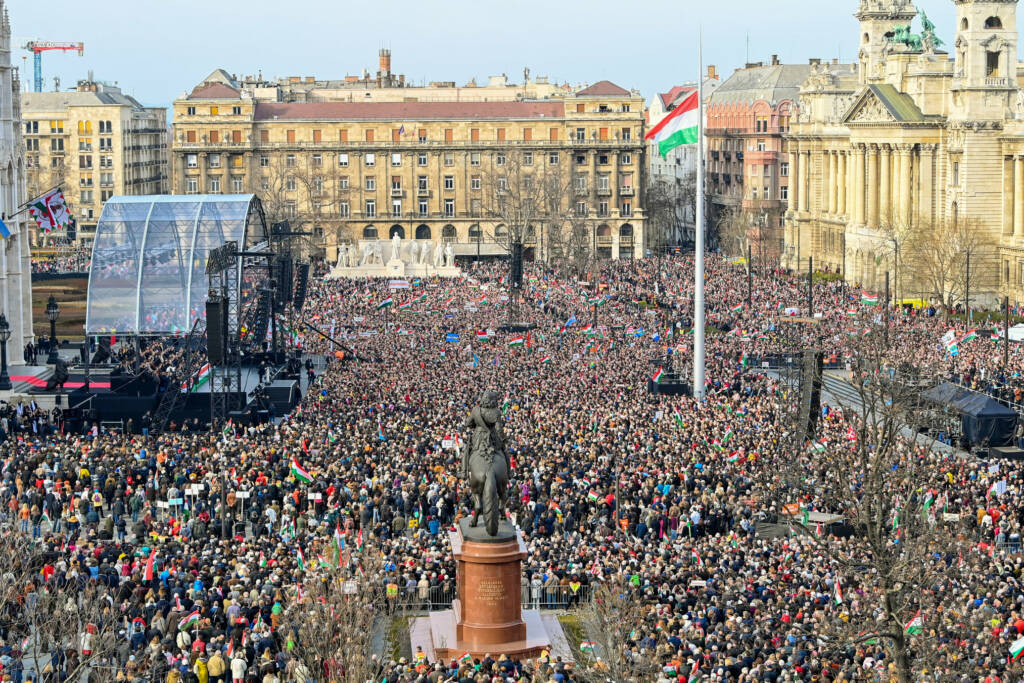
Hungary being “on the border between worlds”, wars in this region are not fought for Hungary or in its interest. Viktor Orbán insisted that Central Europe was only a chessboard in the eyes of great world powers, for whom Hungary is only a pawn, which led him to declare that
“The best war is the one you manage to avoid.”
He went on to say that Russia considers its interests, Ukraine its own, and that neither the United States nor Brussels will ever think with a Hungarian head and heart. Thus, Hungary must not fall victim to a war waged by others.
“No Hungarian should find himself between the Ukrainian anvil and the Russian hammer, which is why we will not be sending any weapons or soldiers to the combat zones.”
Viktor Orbán accused the Hungarian left of wanting to bring Hungary into this war, by wanting to send weapons and soldiers and promised that it would not allow the left to have its way. For the incumbent, there is no time for amateurism and Hungary needs an experienced government certain of its decisions. Hungary currently has no room for error. According to him, on 3 April, the choice will be as follows:
“The right is on the side of peace, the left on the side of war. Construction or destruction. Forward or backward.”
Donald Tusk, star of the united opposition demonstration
In his speech, Viktor Orbán mentioned the former Polish Prime Minister and President of the European Council in unflattering terms, referring to a man who disgraced himself in his own country. Donald Tusk, current president of the Civic Platform and the European People’s Party, did take part in the rally of the united opposition to give a speech in which he clearly interfered in Hungarian affairs and made his own opposition’s discourse against the Hungarian government:
“Hungarian elections are important to the whole of Europe. Orbán is seen everywhere as the most pro-Putin leader. […] Unfortunately, Putin’s vision is also conveyed here in Budapest. It is the image of censorship, of an authoritarian and corrupt state, a state that promotes the cult of force instead of law. […] Long live Poland, long live Hungary, long live the free and democratic world. Long live the Ukrainian independent state, long live a united Europe. See you at the polls, I wish you all success.”
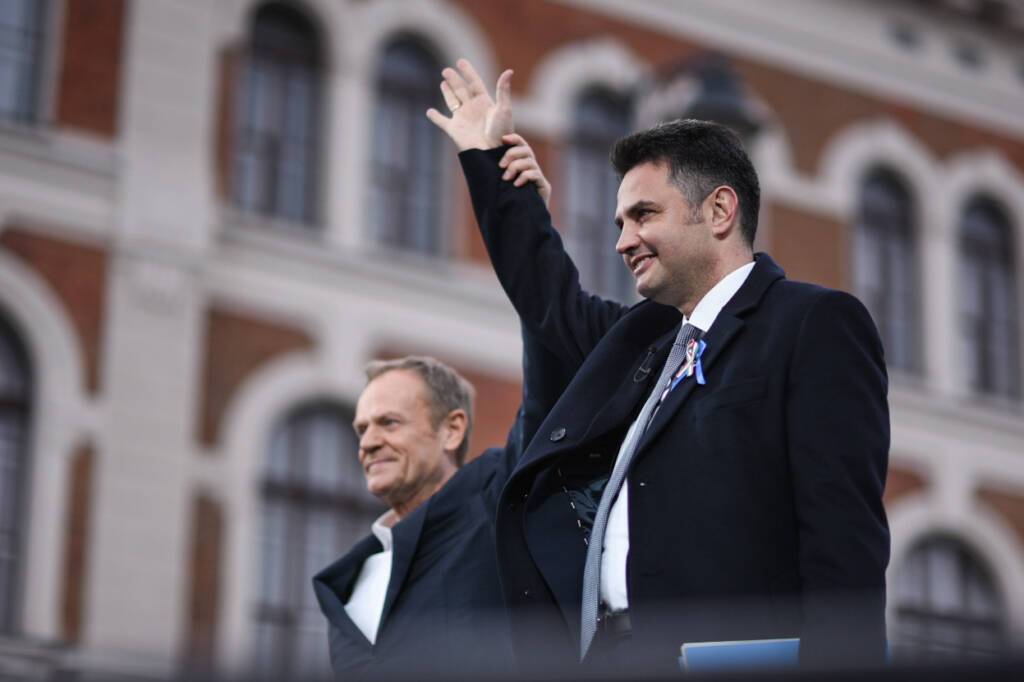
It is by using the same rhetoric that the united opposition candidate Péter Márki-Zay chose to close the rally of the six-party coalition’s troops:
“Facing the East we choose Europe, facing slavery and tyranny we choose freedom. “
Péter Márki-Zay recalled his unwavering attachment to the European Union and the Atlantic Alliance, whilst explaining that the selfishness and thirst for power of the Hungarian Prime Minister had led Hungary to return to the wrong side of history when it should have moved closer to the developing West.
Lagging behind in the polls, and a nuisance even within his own camp, the opposition candidate insisted that indeed he had never won any opinion polls but that he had never lost an election. Aware of his potential defeat on 3 April, the opposition candidate declared:
“I believe in the future of Hungary and, yes, I believe in miracles. The union of forces is capable of miracles, I have already thrice experienced it.”
According to him, the opposition is able to win the elections with a two-thirds majority and thus put an end to “the most corrupt government in the millennia long history of Hungary.”
Opposition to NATO troops on Hungarian soil
While, a few weeks ago, it benefited from real momentum thanks to its frontal opposition to health measures, the party of the mayor of Ásotthalom, László Toroczkai, had to adapt its campaign strategy due to the lifting of these measures and the new situation created by the Russian military intervention in Ukraine.
Mi Hazánk gathered its troops in front of the National Museum in Budapest where the chairman of this nationalist movement called on his people to not forget the health sequence whilst staying vigilant about the current armed conflict:
“If someone had told us three years ago that people would be banned from leaving their homes, that their children would have to be taken to school in masks, that the greatest armed conflict since the Second World War would begin on our doorstep, then we would not have believed it and it would have made us think of a surrealist film.”
László Toroczkai equated profiteers from the sale of both vaccines and weapons and explained that his party’s position in this war was the same as that on Covid, while affirming that it would be reckless to entrust Hungary in the hands of a man like Péter Márki-Zay.
Mi Hazánk is the party with the strongest position on the Russian-Ukrainian question. This movement pleads for Hungary’s total neutrality and independence and does not shun from evoking the responsibility of the Euro-Atlanticist bloc in the outbreak of this conflict.
